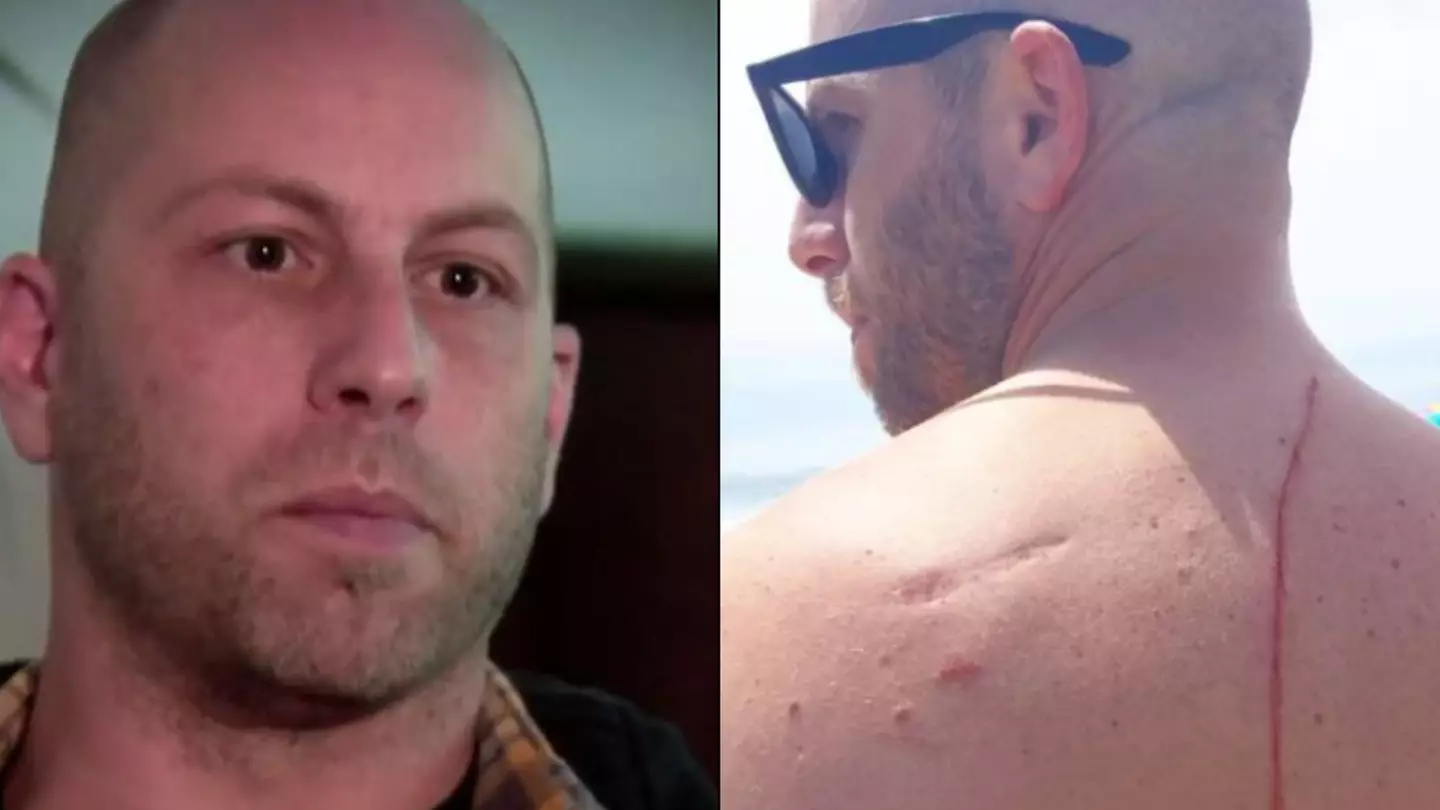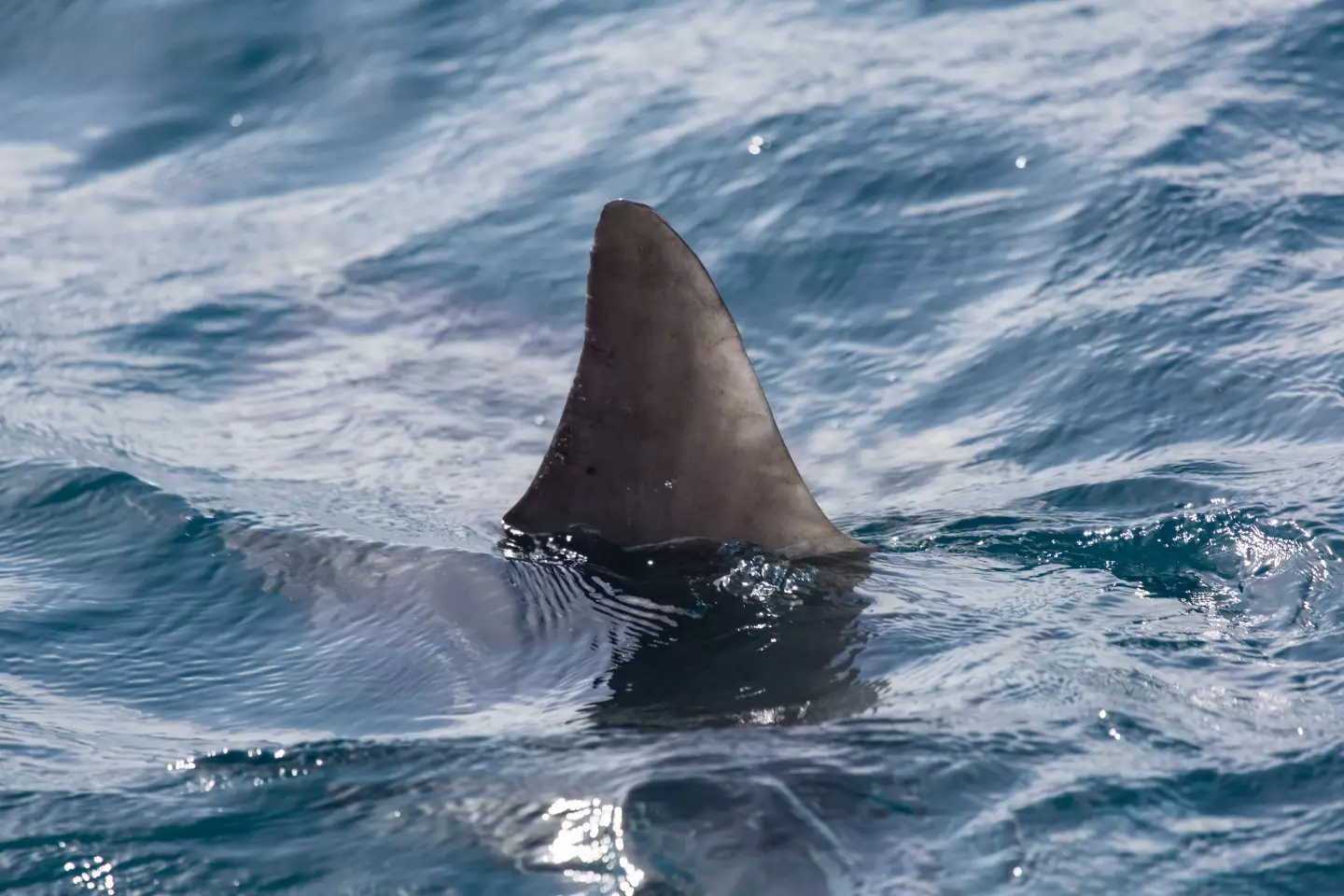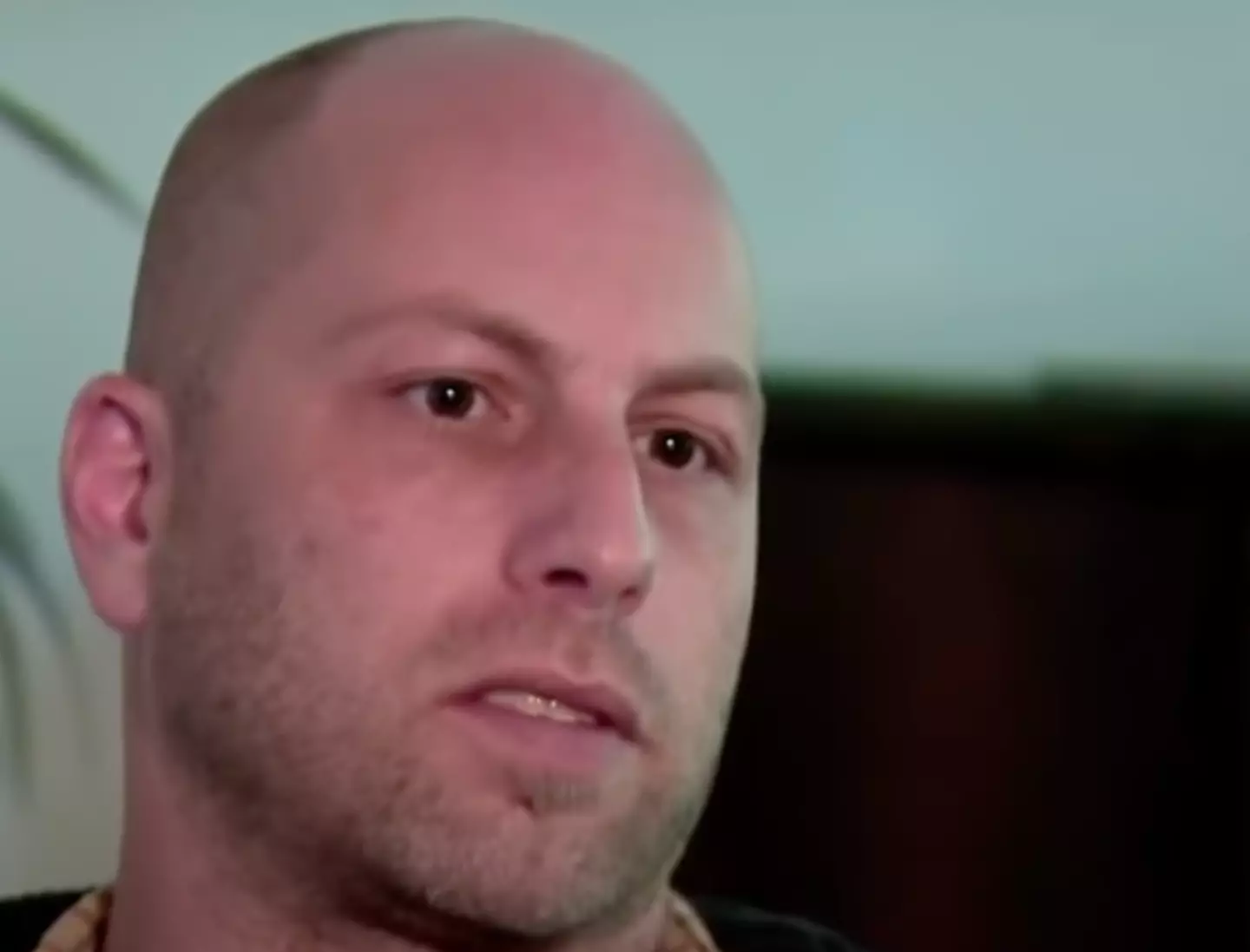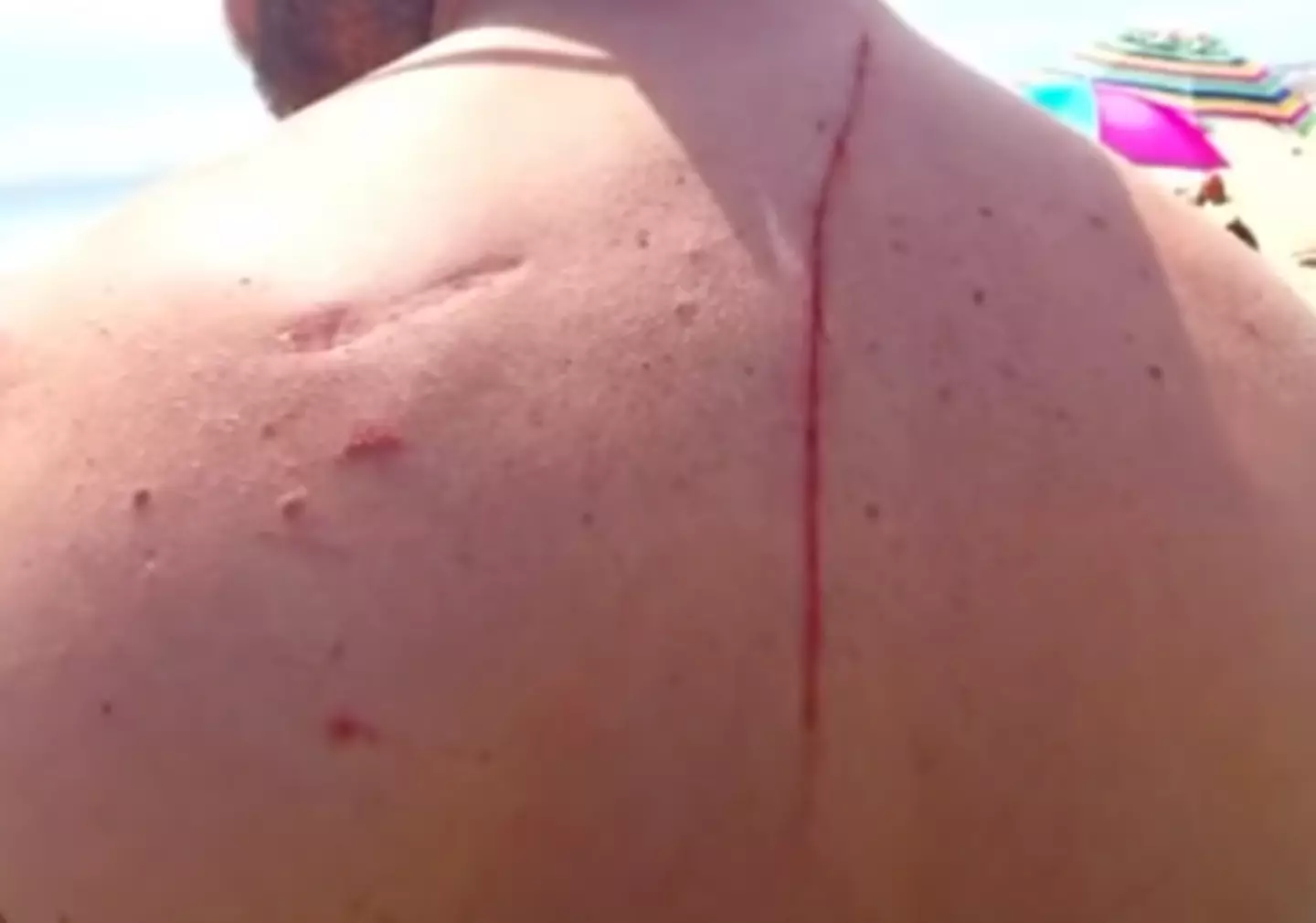
A man who was attacked while swimming in the ocean near sharks was left feeling grateful for his injuries after they ended up saving his life.
Massachusetts resident Eugene Finney was visiting his parents in Huntington Beach, California in July 2015 when he decided to take his girlfriend and his two kids to the beach for a day of sunbathing and swimming.
One of Finney's children, who was 10 at the time, asked her dad to go for a swim and the pair ended up about 100 yards off shore in water about 10 to 15 feet deep.
Advert

The father grabbed his daughter when he saw a large wave approaching, but after they dove under it Finney was hit by a large object when he tried to surface.
When they returned to shore, his daughter asked why his back was bleeding and he discovered he had a foot-long gash across his back.
Finney's girlfriend and son said they had seen fins in the area where Finney had been hit, prompting suspicion that a shark had caused the injury.
Just two days later, a surfer was bumped by a juvenile great white shark in the area where Finney had been swimming.
Advert
Finney didn't seek out lifeguards or report the incident in the aftermath, but after returning to Massachusetts, he went to hospital due to chest pain and trouble sleeping.
He underwent an EKG and chest X-rays, which showed he had inflammation around his heart due to the blunt force trauma he'd experienced in the sea.
As the doctors observed the injuries, they made an 'incidental discovery' - a small tumour located on Finney's right kidney, which doctors determined could be cancerous.

Finney was referred to Dr. Ingolf Tuerk, director of the robotic-assisted surgery program at St. Elizabeth's, and he had the tumour removed along with approximately 20 percent of his kidney. A week later, the biopsy results revealed the tumour was cancerous.
Advert
Speaking to The Washington Post after recovering from his operation, Finney described the events as being given a 'message from Mother Nature'.
"That’s what started this series of events that brought me to the hospital to let me know about this. Otherwise I would never have gone in, and they wouldn’t have caught it."

Finney continued: "The only real way I would have found out was the tumour growing so large it was metastasizing and spreading and then I would have the symptoms of stage four cancer."
"I would have started losing weight and getting sick and at that point it would have been too late. If I could find this shark and give it a hug, I would."
Advert
Lt. Claude Panis, of the Huntington Beach Marine Safety Division, noted there are 'a number of things' that could have caused the injury on Finney's back, but whatever the cause it turned out to be for the best.